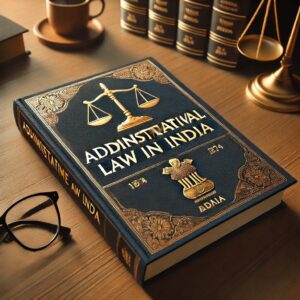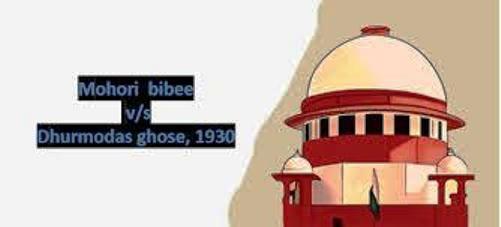Introduction to Administrative Law
Administrative law is the branch of law that governs the organization, powers, functions, and duties of administrative authorities. It ensures that public officials act within the framework of the Constitution and the law.

Key Features of Administrative Law:
✅ Regulates Government Action – Ensures that executive and administrative actions comply with the law.
✅ Ensures Accountability – Provides remedies against arbitrary government actions.
✅ Includes Judicial Review – Courts review administrative decisions to ensure fairness and legality.
✅ Protects Fundamental Rights – Prevents administrative overreach that infringes on citizens’ rights.
Sources of Administrative Law:
- Constitution of India – Fundamental rights, separation of powers, and judicial review.
- Statutes – Laws enacted by Parliament (e.g., Right to Information Act, 2005).
- Judicial Precedents – Case laws interpreting administrative actions.
- Delegated Legislation – Rules, regulations, and notifications issued by administrative bodies.
Landmark Cases on Administrative Law
1. A.K. Kraipak v. Union of India (1969) – Doctrine of Bias
Facts: Members of a selection board were also candidates for the post, raising concerns about bias.
Judgment: The Supreme Court ruled that administrative actions must follow the principles of natural justice.
Conclusion: Established that bias in administrative decision-making leads to invalidation of the action.
2. Maneka Gandhi v. Union of India (1978) – Right to Fair Hearing
Facts: Maneka Gandhi’s passport was impounded without giving her a reason or an opportunity to be heard.
Judgment: The Supreme Court held that the principle of natural justice applies to administrative actions.
Conclusion: Reinforced that a fair hearing is a part of the right to personal liberty under Article 21.
3. Union of India v. R. Gandhi (2010) – Tribunal Independence
Facts: This case questioned the independence of tribunals and their separation from executive influence.
Judgment: The Supreme Court ruled that tribunals must be independent and free from executive control.
Conclusion: Strengthened judicial independence and fairness in administrative adjudication.
4. State of Rajasthan v. Union of India (1977) – Judicial Review of Administrative Action
Facts: The central government sought to dismiss state governments on political grounds.
Judgment: The Supreme Court ruled that such actions were subject to judicial review.
Conclusion: Ensured that executive decisions could not be arbitrary and must be legally justified.
5. R.D. Shetty v. International Airport Authority of India (1979) – Government Contracts and Fairness
Facts: The government awarded a contract arbitrarily, without proper bidding procedures.
Judgment: The Supreme Court held that government contracts must be awarded fairly, following due process.
Conclusion: Established the principle that government actions must be transparent and non-arbitrary.
MCQs on Administrative Law
1. Which case established the doctrine of bias in administrative law?
A) Maneka Gandhi v. Union of India
B) A.K. Kraipak v. Union of India
C) Union of India v. R. Gandhi
D) State of Rajasthan v. Union of India
✅ Answer: B) A.K. Kraipak v. Union of India
2. Which principle was upheld in Maneka Gandhi v. Union of India?
A) Right to property
B) Doctrine of separation of powers
C) Right to fair hearing under Article 21
D) Rule against bias
✅ Answer: C) Right to fair hearing under Article 21
3. The independence of tribunals was a key issue in which case?
A) R.D. Shetty v. International Airport Authority of India
B) Union of India v. R. Gandhi
C) State of Rajasthan v. Union of India
D) A.K. Kraipak v. Union of India
✅ Answer: B) Union of India v. R. Gandhi
4. Which case dealt with judicial review of administrative actions?
A) Maneka Gandhi v. Union of India
B) R.D. Shetty v. International Airport Authority of India
C) State of Rajasthan v. Union of India
D) Union of India v. R. Gandhi
✅ Answer: C) State of Rajasthan v. Union of India
5. The requirement for fairness in government contracts was established in which case?
A) A.K. Kraipak v. Union of India
B) Maneka Gandhi v. Union of India
C) Union of India v. R. Gandhi
D) R.D. Shetty v. International Airport Authority of India
✅ Answer: D) R.D. Shetty v. International Airport Authority of India



